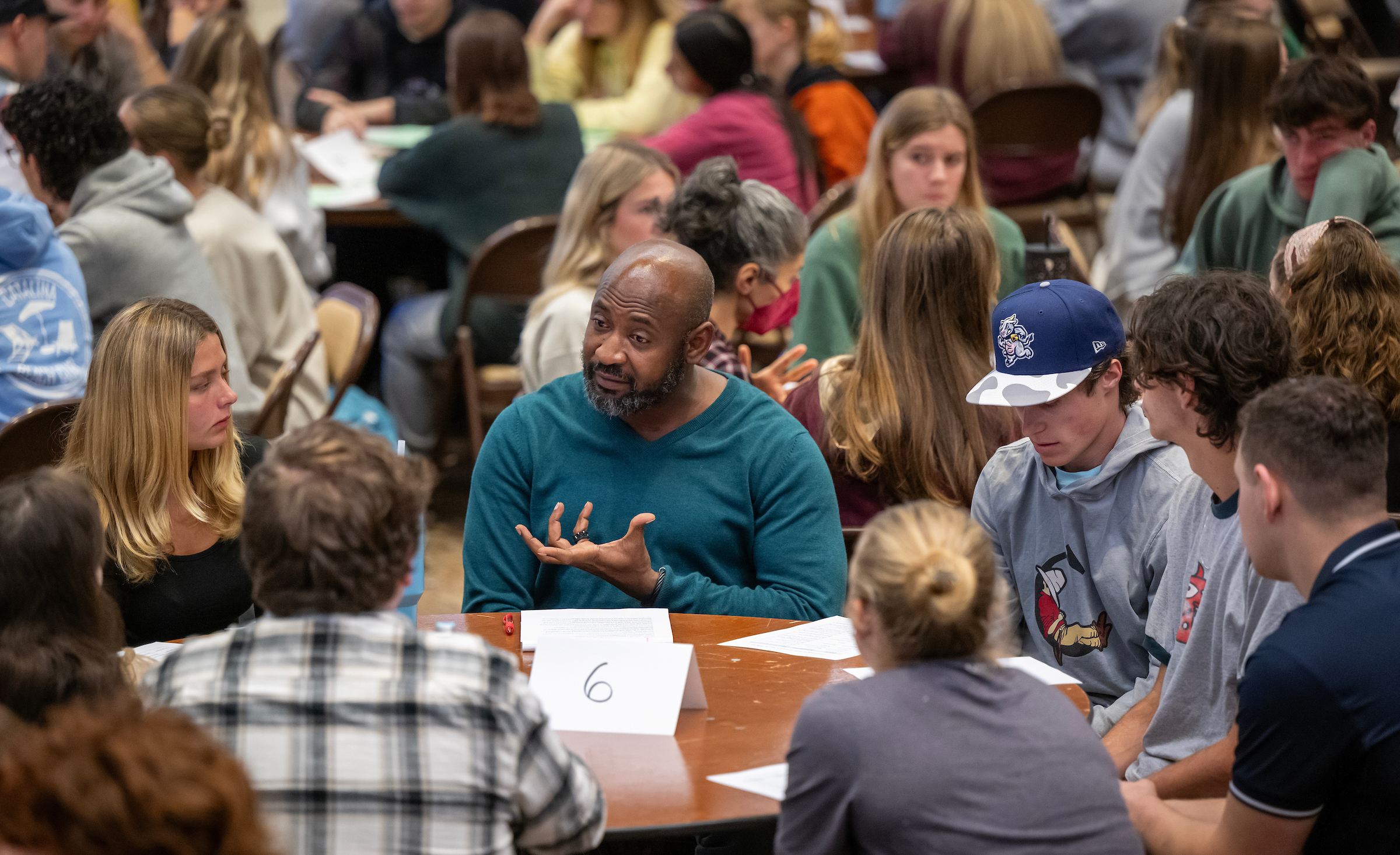The "Contextualizing the Conflict: Conversations about the Middle East" event was held in McKinnon Hall on Wednesday, Oct. 18.
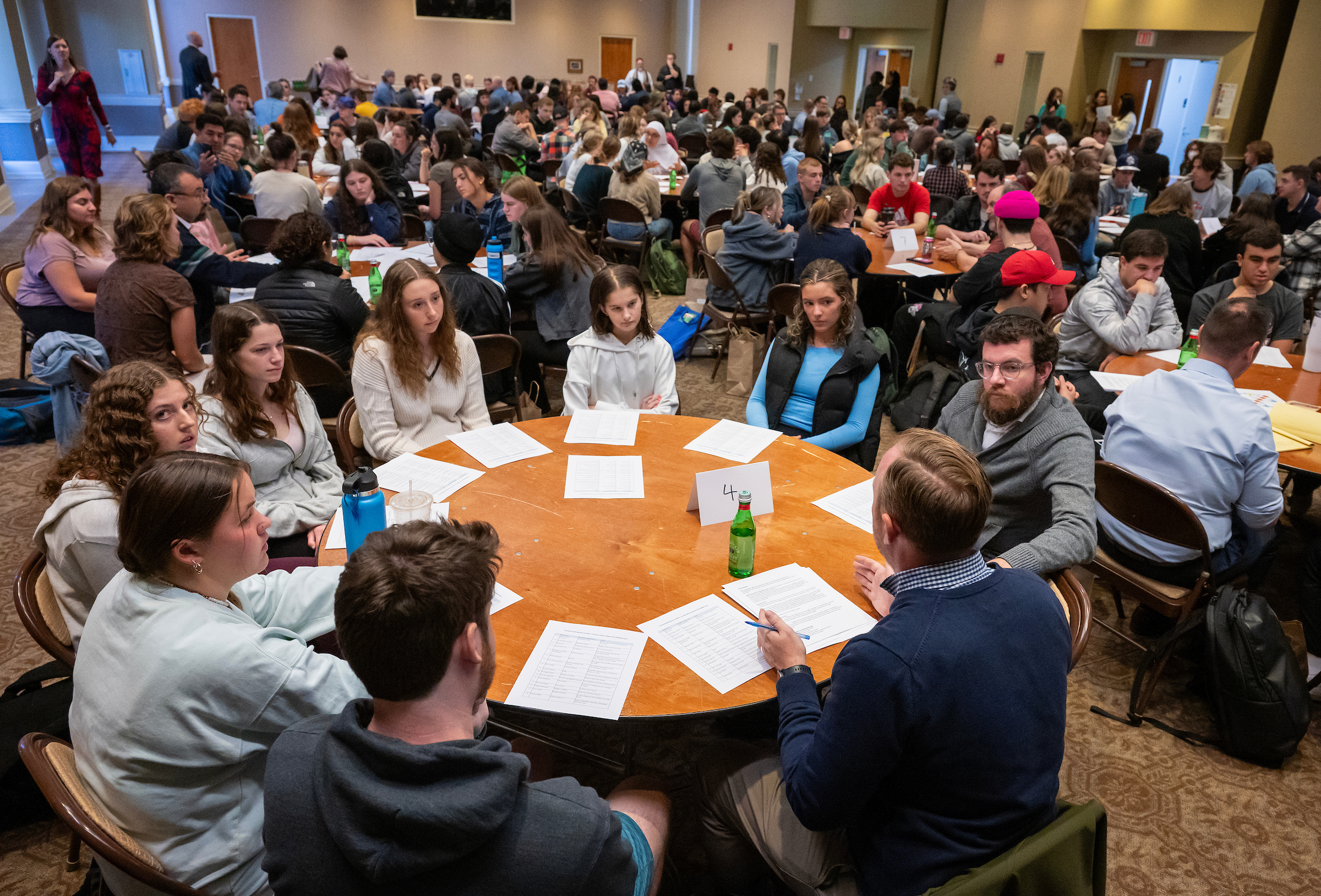
On Wednesday, Elon University hosted a discussion “Contextualizing the Conflict: Conversations about the Middle East” regarding the ongoing conflict between Israel and Hamas, the militant group in control of Gaza.
More than 200 Elon students, faculty and staff gathered in McKinnon Hall for the event aimed to engage the university community on the historical context and current conflict between Israel and Palestine.
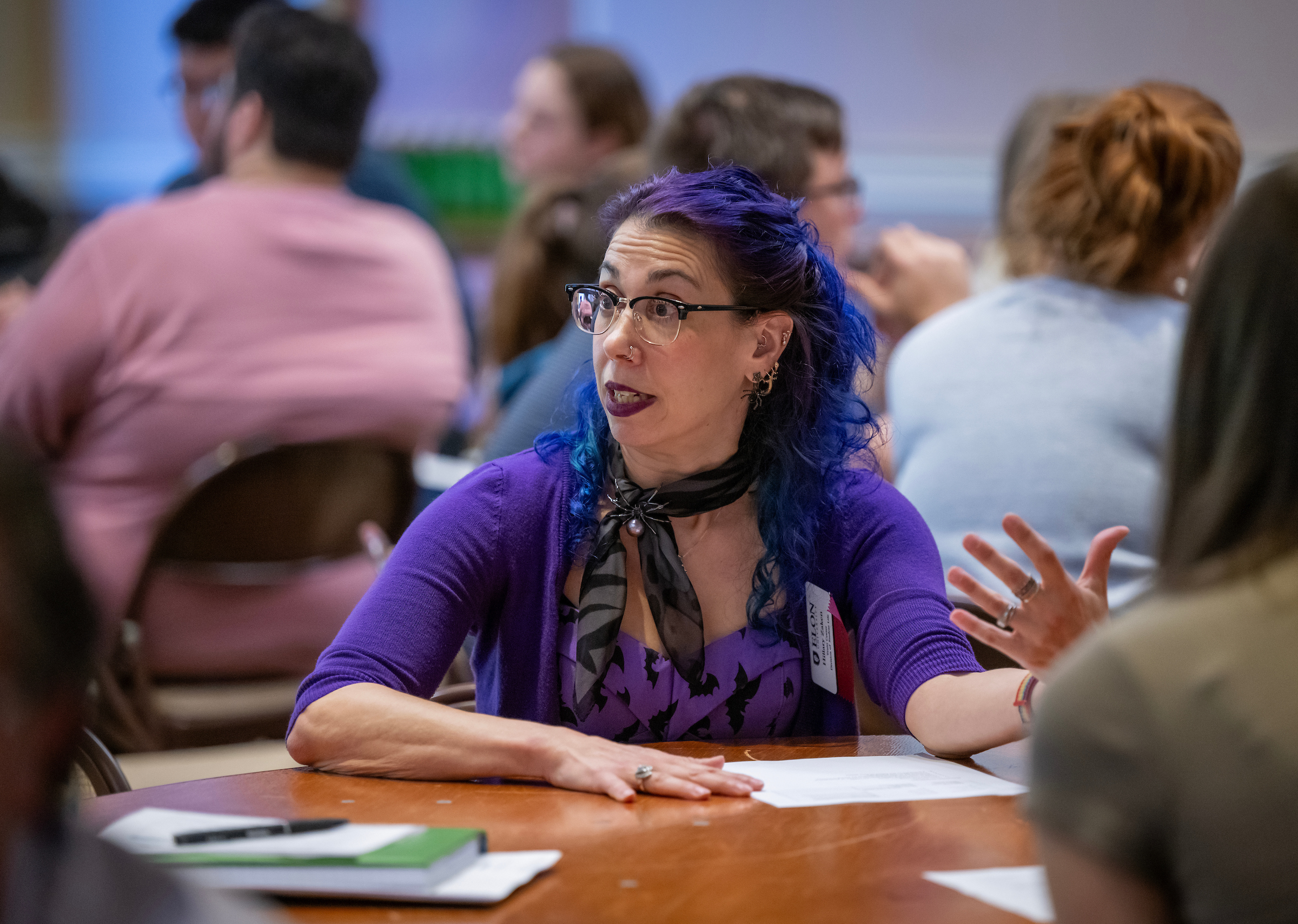
Participants in the discussion were asked to listen actively, commit to learning, respect opposing views and critique ideas, not individuals. Speaking from one’s own experiences and not resorting to generalizations was also a guideline recommended for attendees to ensure the event was respectful and thoughtful.
The event was organized by Elon faculty: Carrie Eaves, associate professor of political science and policy studies; Jason Husser, associate professor of political science and director of the Elon Poll; Andrea Sinn, associate professor of history; and Brian Pennington, director of the Center for the Study of Religion, Culture and Society and Professor of Religious Studies.
“Elon has long had a commitment to providing educational opportunities after major breaking news events. As a higher education institution, we value bringing our students together with our faculty who have expertise,” Husser said. “I hope those who attend get a deeper sense of context of a very complex situation and understand the issues can be approached from many different angles.”
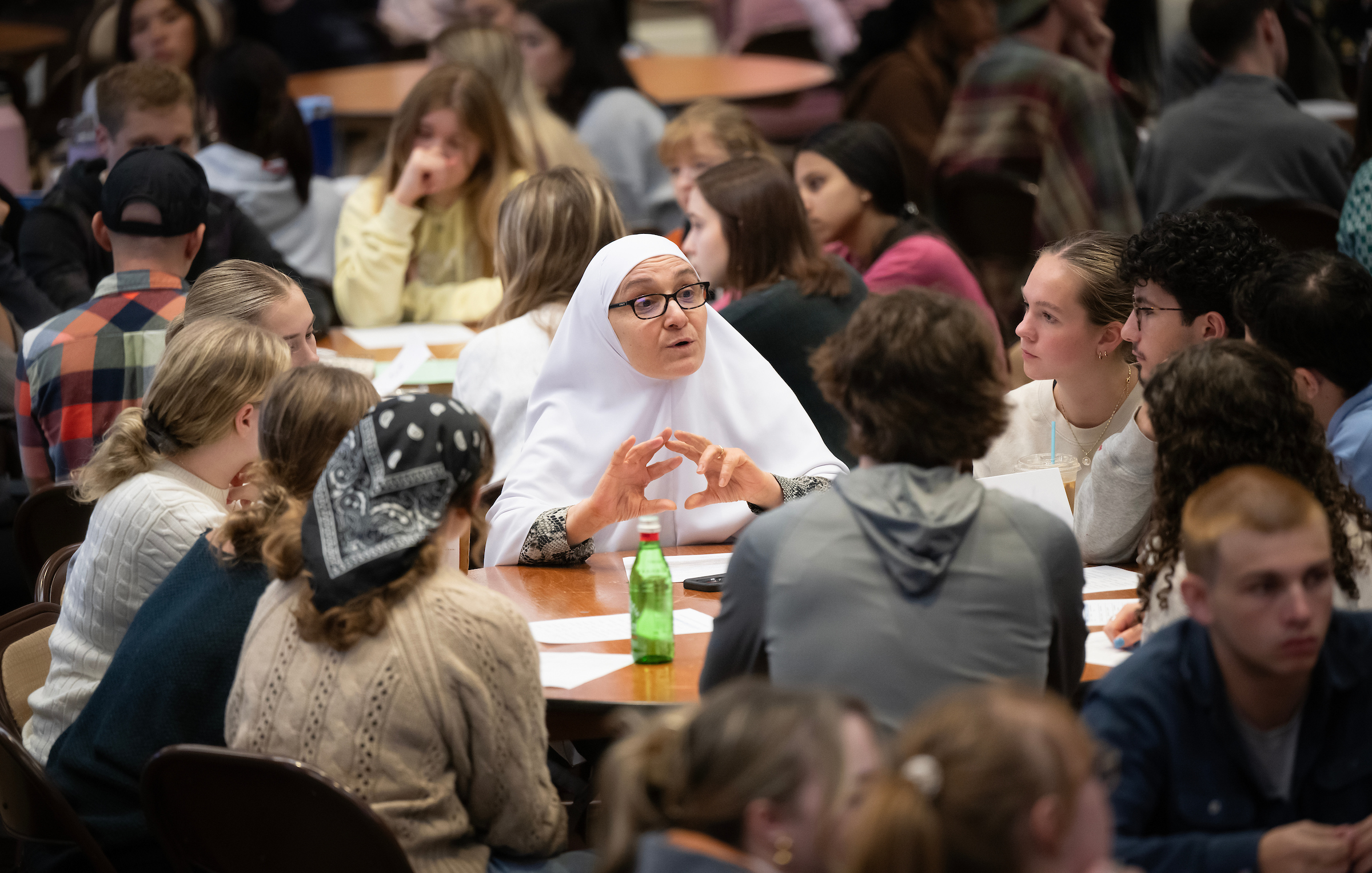
More than 20 faculty members from a broad range of disciplines held discussions on their specific areas of expertise and how those areas relate to the ongoing conflict. From political science, religious studies, journalism, history, law, and certain others, a wide view of how this conflict touches so many areas was discussed.
After 15 minutes of open discussion, participants rotated to another table with another topic.
“There’s also not only one narrative. We want to really highlight the diversity, the multiple layers of the conflict and the diverse perspectives that are tied to this,” Sinn said. “We hope that students having the opportunity to have three conversations … with different faculty and be exposed to something new that maybe they have not heard about will provide a new avenue towards understanding what is happening and unfolding.”
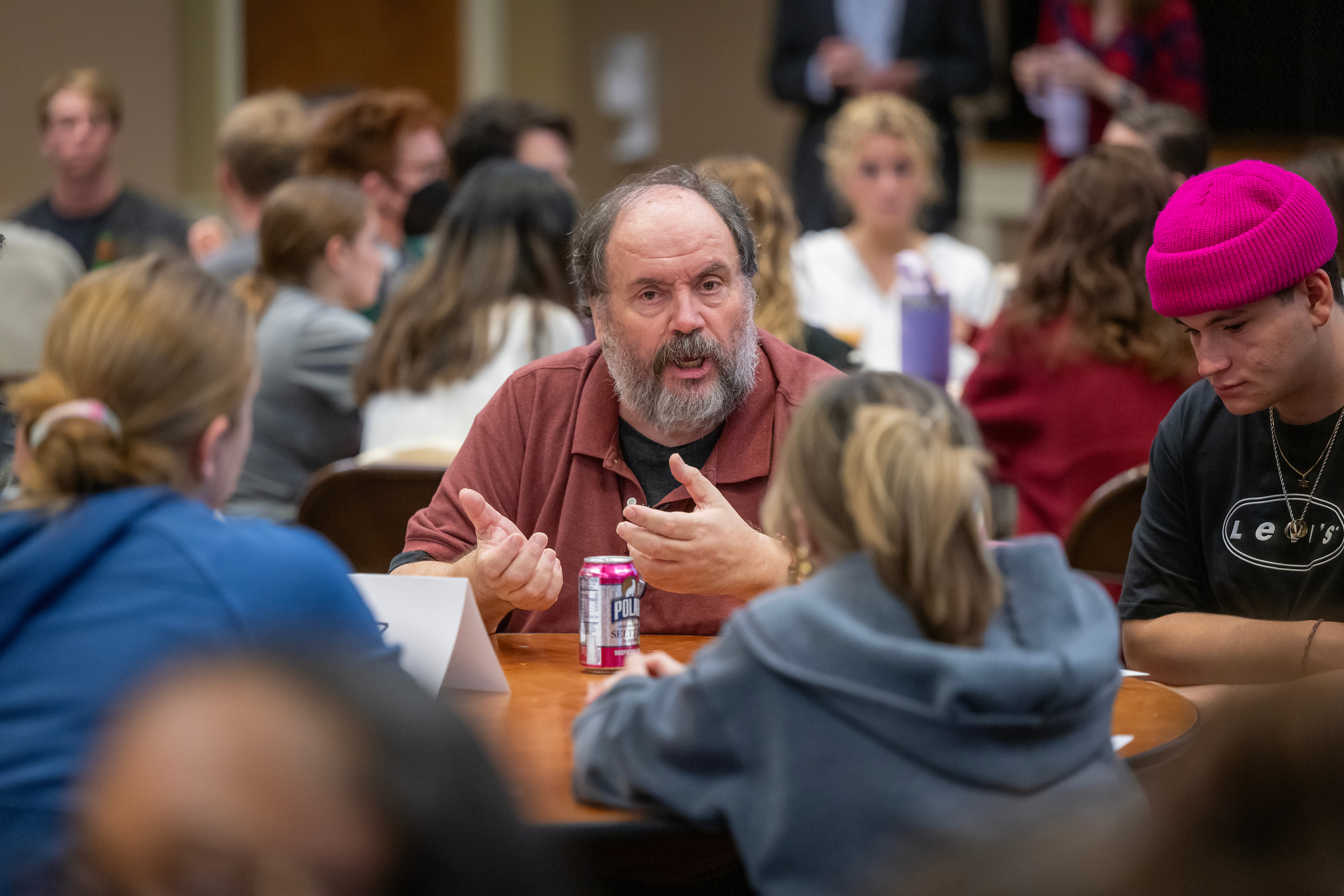
Aidan Spoerndle ’27 said he was appreciative of the university hosting this event for the community.
“I appreciate having this outlet so I can learn more because I’m sort of disconnected from the news,” Spoerndle said. “Having these professors talk about the current issues with context and letting me experience my opinions while also hearing what they have to say as educators and intellectual individuals … is really important.”
Eaves said organizers hoped everyone would leave the discussion more informed than when they arrived. “We can’t answer all the questions but I think we can help create a better understanding of the complexity and nuance,” Eaves said.
In a situation as nuanced and deep-rooted as what is happening in Israel and in Gaza, Sinn said that it is important to provide what Elon can do best — learning opportunities for Elon students based on the scholarly expertise of the faculty.
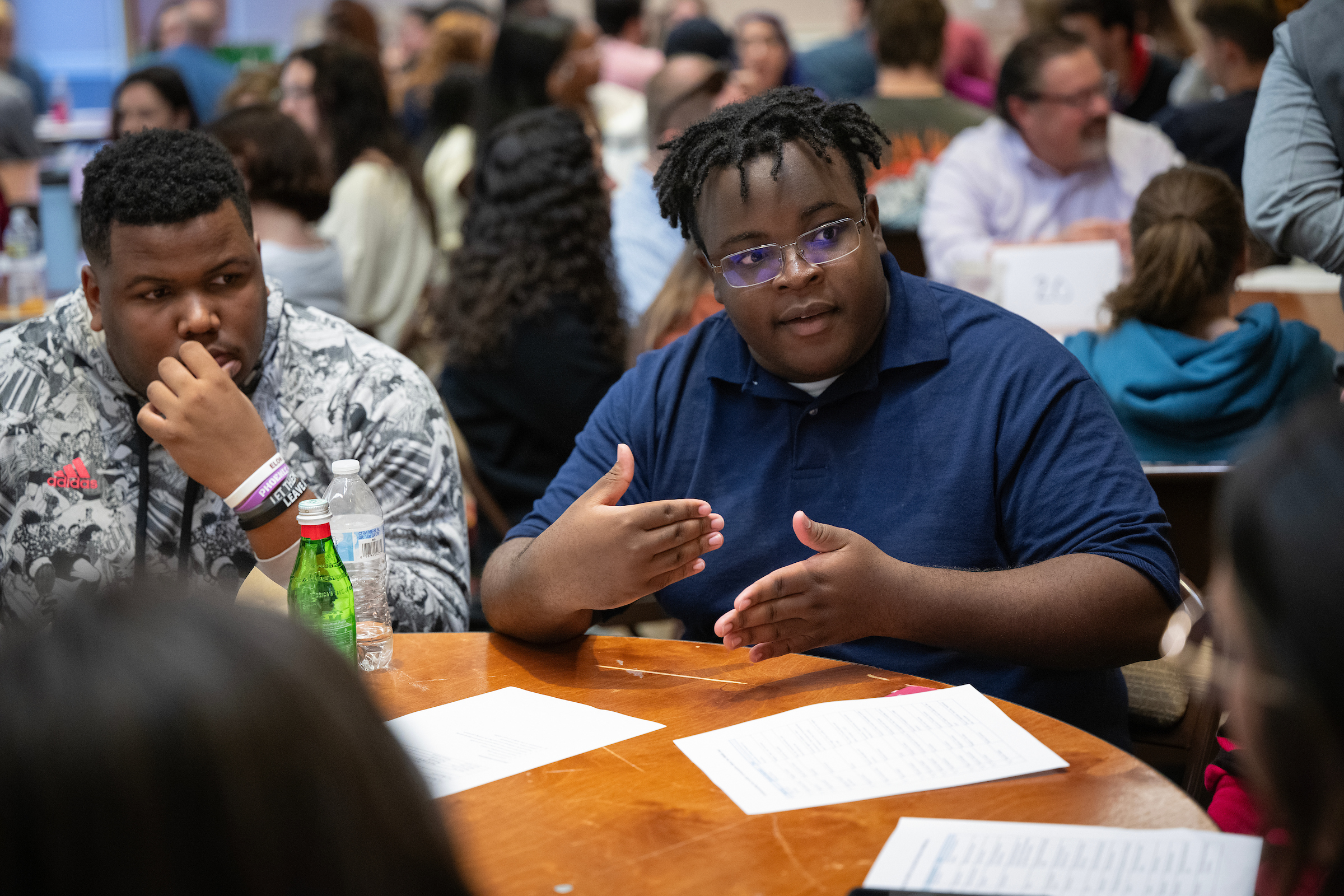
“That’s what we’re trying to offer as a starting point for conversations on this super complex issue that is built on a long history and will be dominating the news as far as we can tell,” Sinn said. “So bringing us together to hear from each other, to learn with each other, that’s why we put this together.”
Another academic dialogue facilitated by Elon faculty and staff will be held later this semester to discuss the situation in the Middle East past and present.



